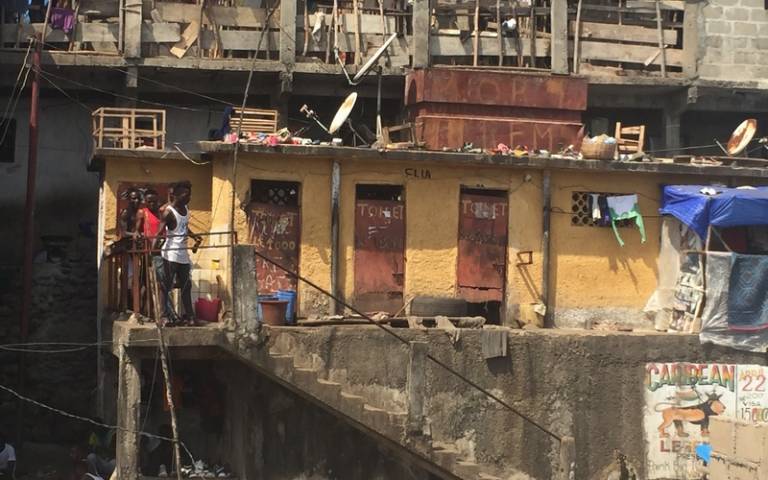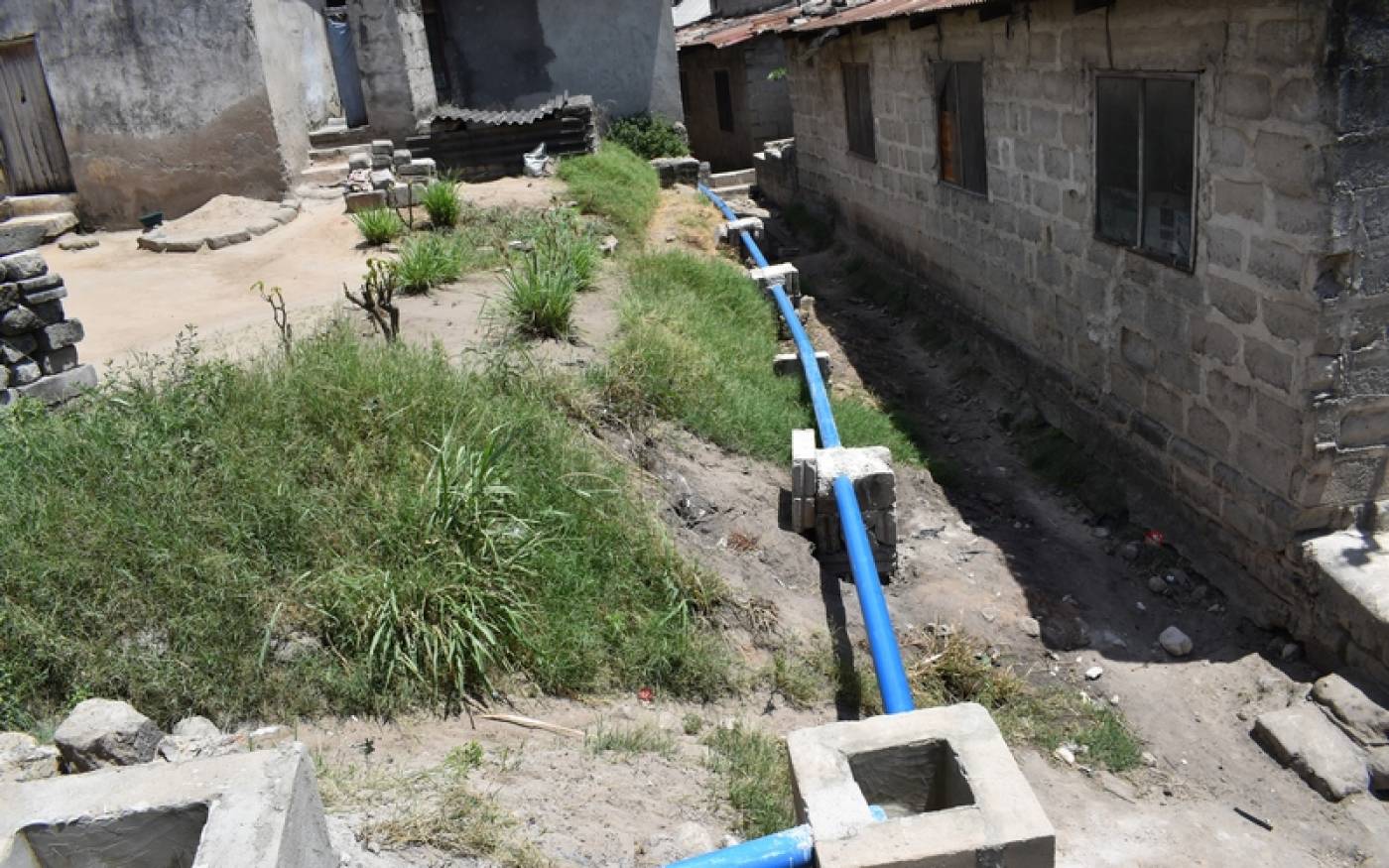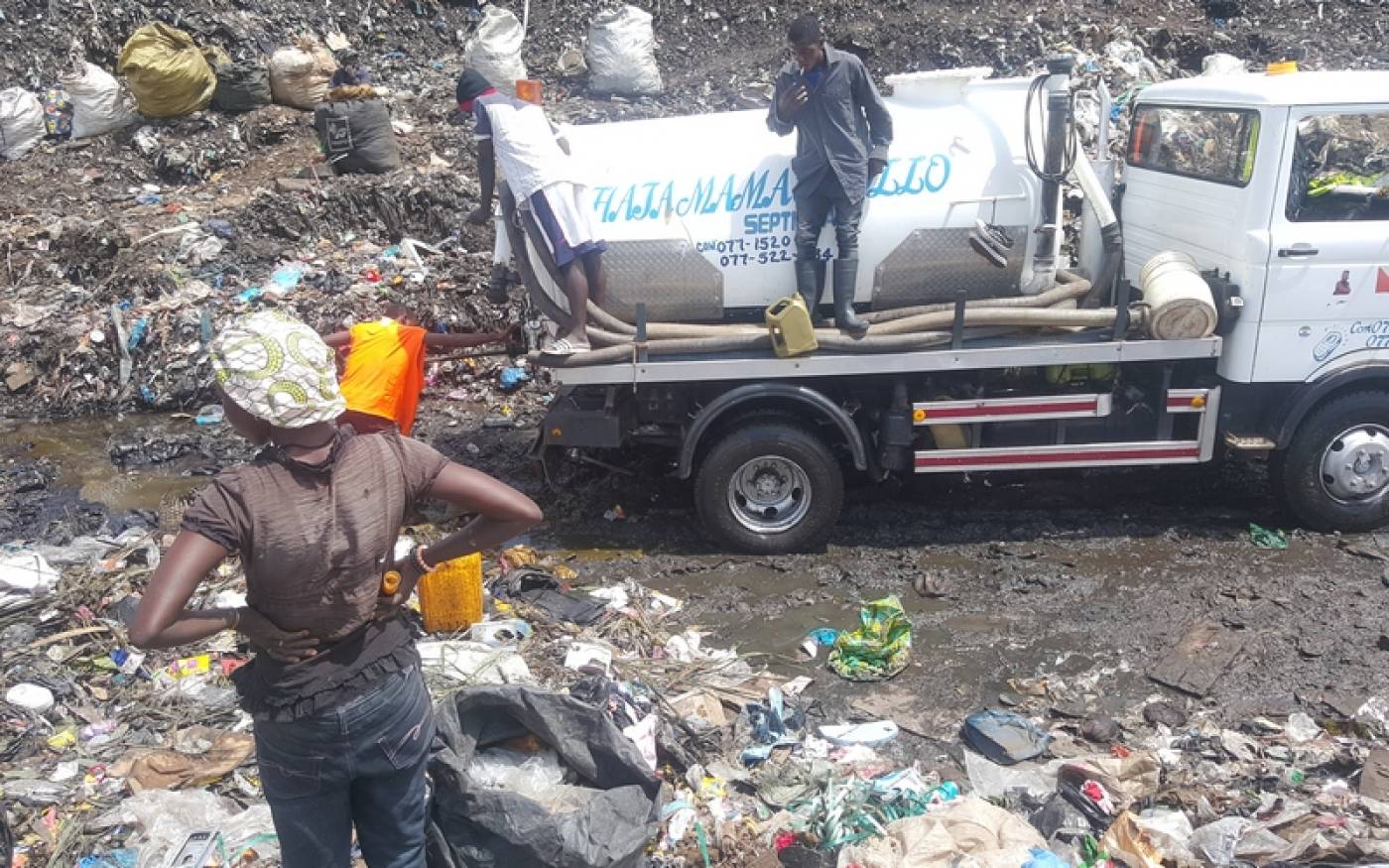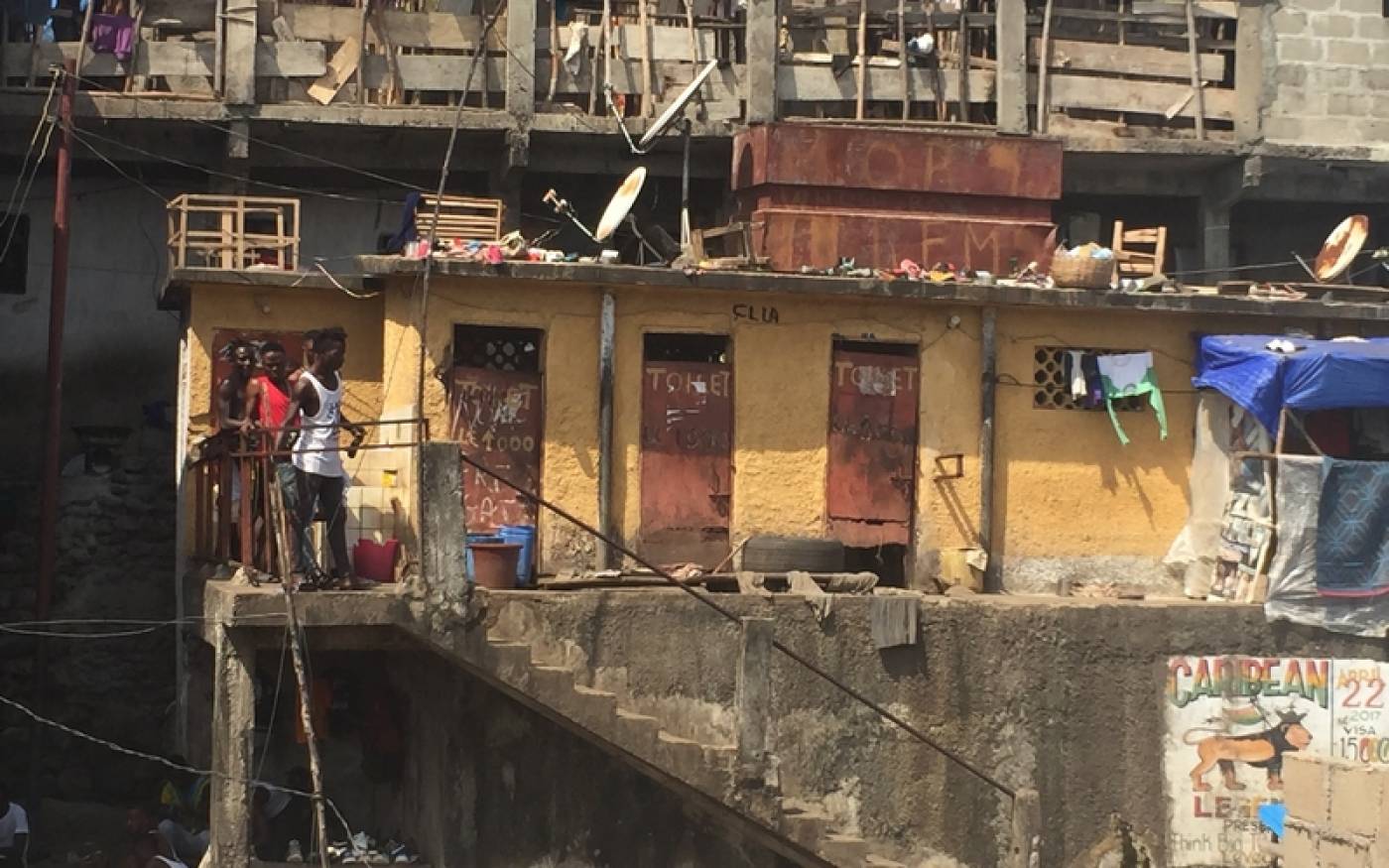OVERDUE: Tackling the sanitation taboo across Urban Africa
A transdisciplinary network is challenging gender inequalities in sanitation across urban Africa.

7 October 2020
Photo credit: Pascale Hofmann, UCL DPU
Community-managed public toilets in Susan’s Bay, Freetown, Sierra Leone.
Disposing safely of human waste has long been recognised as a human right and is crucial to achieving many of the SDGs. “Yet we witness a persistent and exculpated violation of this basic human right, endured by the vast majority of the urban poor in Africa”, explains Professor Adriana Allen (UCL DPU), who leads the OVERDUE team.
“Sanitation can produce illness or health, poverty or prosperity, suffering or well-being, stigma or respect. Inequality in sanitation provision continues to be ignored, yet it is highly significant for most of the world’s urban population, especially girls and women. Tackling it is long overdue”, she adds.
The OVERDUE project brings together academics, practitioners, activists, and grassroots organisations from the Development Planning Unit (DPU), Sierra Leone Urban Research Centre (SLURC), Centre for Community Initiatives Tanzania (CCI), Ardhi University, COWI, and L’être égale, to tackle the sanitation taboo.
OVERDUE will shine a light on sanitation inequalities as seen and experienced by those most affected. Its aim is to challenge dominant narratives that describe the problem as simply an infrastructural deficit and to identify ways to improve people’s living standards by connecting off-grid and on-grid arrangements that are providing safe sanitation.
Focusing on the three fast-growing cities of Beira (Mozambique), Freetown (Sierra Leone) and Mwanza (Tanzania), the team will draw on African and urban studies, feminist political ecology and technology studies, and work closely with sanitation users and providers, grass-roots organisations, and local authorities.
OVERDUE is engaging with the women and men who build, use, and run sanitation infrastructure to generate both insights and change. “We are organizing sanitation festivals to celebrate the contributions of sanitation providers in each city, and itinerant exhibitions to catalyse dialogues on sanitation equality and put on the spot the associated issues of physical safety, health, and dignity,” explains Nelly Leblond (UCL DPU), one of the OVERDUE research team.
The team aims to undertake a 360-degree re-evaluation of sanitation experiences, practices and investments and city-wide trajectories, taking into account different colonial legacies and post-colonial conditions. “For example, we will investigate planning decisions, land uses and landlord-tenant relationships, as they each impact the space allocated to sanitation infrastructure and their maintenance,” explains Professor Allen.
“OVERDUE will provide actionable knowledge and foster interaction and collaboration between users and providers across urban Africa to further sanitation equality,” she adds

Simplified sewerage system in Mwanza, Tanzania. (Tim Ndezi, Centre for Community Initiatives, 2020)

Sanitation waste disposal in Bomeh Kingtom, Freetown, Sierra Leone (Sulaiman Kamara, Sierra Leone Urban Research Centre, 2020)

Community-managed public toilets in Susan’s Bay, Freetown, Sierra Leone (Pascale Hofmann, UCL Development Planning Unit, 2019)
 Close
Close


